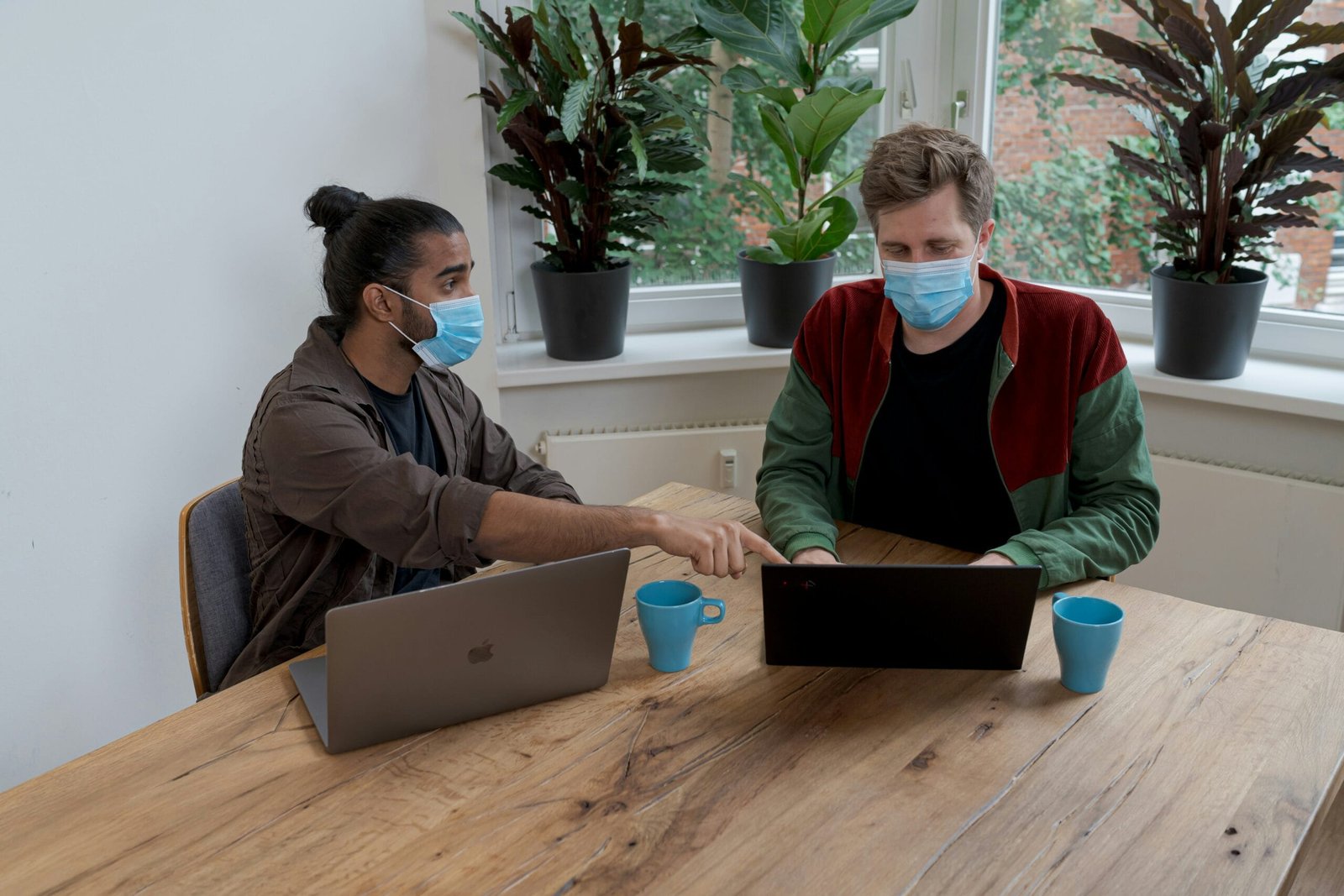Have you ever found yourself staring at a blank screen, wondering how to express ideas that could potentially unlock funds and transform dreams into reality? If so, you’re not alone. Stepping into the world of grant writing can feel like navigating a maze without a map, but it doesn’t have to be. Let’s take a moment together to understand the nuances of being a grant writer, and how you can successfully harness this skill to bring about meaningful change.

Understanding the Role of a Grant Writer
A grant writer is more than just someone who fills out applications. You’re the storyteller, championing the cause of an organization, a project, or a mission. Imagine being the voice that captures the attention of funders, articulating needs, and demonstrating the impact their contributions would make. This is a pivotal role that requires a blend of creativity, precision, and empathy.
The Purpose of Grant Writing
Your primary objective as a grant writer is to secure funds through engaging and persuasive proposals. These funds could be pivotal in launching new initiatives, sustaining ongoing programs, or expanding existing efforts. You’re essentially bridging the gap between a project’s potential and the financial means to realize it.
Key Skills Required
To excel in grant writing, you’ll need a unique blend of talents:
Research Skills: You’ll often find yourself delving into databases to identify potential funding sources. Understanding what a specific funder values in a proposal can mean the difference between success and a missed opportunity.
Writing and Communication: The ability to convey complex ideas simply and persuasively is paramount. It’s all about painting a vivid picture of what could be if their support is received.
Creativity and Problem Solving: Each grant is unique, as is each funder. Being adaptable and creative in your approach to writing can make your proposals stand out.
Detail-Oriented: Accuracy is crucial. Attention to detail ensures that proposals meet specified guidelines, protecting against disqualification for simple errors.
The Grant Writing Process
Understanding the grant writing process can feel like trying to piece together a puzzle. Each piece is vital, and the picture isn’t complete until every piece fits perfectly.
Identifying Funding Opportunities
Begin by identifying opportunities that align with your organization’s mission. This involves researching and understanding both the funding landscape and the specific interests of potential funders. Your role is to match these to your organization’s projects in a way that benefits both parties.
Crafting the Proposal
Crafting a proposal is where your creativity and attention to detail truly shine. Here’s where you will weave together the story that captures the mission, objectives, and potential impact of your project. Each proposal should be tailored to the funder’s specific priorities and requirements.
Writing Compelling Narratives
Your narrative should be the linchpin of your proposal. It’s about constructing a compelling storyline that resonates with the reader:
Opening Statement: Your introduction should immediately grab attention, succinctly stating the core of your proposal.
Organization Background: Share a bit about the organization. What is your mission? How does this project align with your long-term goals?
Problem Statement: Clearly articulate the issue your project seeks to address. Use data and research to establish the urgency of the problem.
Goals and Objectives: Define what you aim to achieve. Ensure that your goals are specific, measurable, achievable, relevant, and time-bound (SMART).
Project Description: Outline how you intend to accomplish your objectives. Include timelines, methodologies, and potentially everybody who will be involved.
Evaluation Plan: Describe how success will be measured. Use both qualitative and quantitative metrics to provide a comprehensive view of potential outcomes.
Budget: A transparent and detailed budget is critical. It should justify every expense and align with the project’s goals.
Submission and Follow-Up
Once your proposal is polished and ready, the submission marks the beginning of a new phase. Keeping track of submitted proposals and following up is crucial. Be patient and ready for feedback or requests for additional information.
Challenges in Grant Writing
Even with the best intentions and effort, grant writing can come with its own set of challenges:
High Competition
The competition for grants can be fierce. For every proposal you submit, there may be dozens, if not hundreds, of others. Crafting a unique, distinctive proposal is key to standing out.
Meeting Strict Guidelines
Funders each have their own unique set of criteria and guidelines. Keeping track of these requirements is essential to avoid disqualification due to technicalities.
Time Constraints
Balancing deadlines and a heavy workload can be daunting. Effective time management and organizational skills are crucial to ensure each proposal is timely and of high quality.
Tips for Successful Grant Writing
To thrive as a grant writer, consider incorporating a few tried and true strategies into your practice:
Build Relationships
Engage with funders even before you begin writing a proposal. Understanding their priorities and building a rapport can significantly impact your chances of success.
Stay Informed
Keeping up with trends in funding and changes in the landscape is crucial. Subscribe to newsletters, attend workshops, and network with other grant writers.
Learn from Feedback
Rejection is a part of the process, but it’s also an opportunity. Use feedback to refine your technique, and improve for future proposals.
Develop a System
Having a streamlined system for tracking deadlines, submission dates, and funder criteria can alleviate some of the logistical challenges you may face. Consider using project management tools or grant management software to help organize your workload.
Focus on Storytelling
Remember, your role is not just to present data, but to tell a story that moves funders. Create narratives that are vivid and engaging, painting a clear picture of the impact their funding will have.
Review and Edit
Never underestimate the power of a thorough review. Editing should go beyond just spelling and grammar; it should ensure clarity, coherence, and persuasiveness in your writing.

The Impact of Grant Writing
At the heart of grant writing is the potential impact it creates. You’re fundamentally shaping the direction and capacity of the organization you represent. Your successful proposals can enable groundbreaking research, community programs, educational initiatives, and much more.
Community Development
Many projects funded by grants have a direct impact on local communities. From boosting local economies to providing critical social services, your writing can catalyze significant change at the grassroots level.
Innovations and Research
Grants often serve as the lifeblood for research and innovation. Whether it’s in technology, medicine, or social sciences, your proposals can help fund groundbreaking advancements that push boundaries and set new standards.
Education and Learning Opportunities
Educational programs hinged on grant funding can provide learning opportunities to underserved populations, enhancing skills and opening doors to future prospects. Your endeavors can positively affect countless lives.
Exploring Career Opportunities as a Grant Writer
If you’re considering a career as a grant writer, you’ll find that opportunities abound in various sectors. Whether you’re drawn to non-profits, education, healthcare, or government, your skills are in demand. Organizations across industries seek talented individuals to help secure the funding they need to achieve their missions.
Non-Profit Sector
Non-profits are often heavily reliant on grants and are a common employer of grant writers. You’ll find opportunities working directly for organizations or as a consultant helping multiple clients secure funding.
Educational Institutions
Colleges and universities frequently seek grant writers to help fund research projects and improve campus resources. A background in academia can be helpful, but not strictly necessary.
Healthcare and Research Organizations
Medical and scientific organizations require funding for research projects, community health programs, and facility improvements. Your work in this sector could contribute to significant breakthroughs and improved healthcare outcomes.
Government Agencies
Numerous local, state, and federal government agencies hire grant writers to help secure funds for public projects, infrastructure improvements, and community services.

Final Thoughts
As a grant writer, you’re not just writing proposals; you’re crafting potential. Your ability to convey passion, necessity, and impact can transform ideas into reality, making a difference for organizations and communities alike. Your journey in this field will be filled with challenges, but the rewards—both personal and professional—can be profound.
Remember, every successful grant starts with understanding and translating needs into compelling narratives that resonate with funders. Through persistence, continual learning, and a focus on clear and persuasive communication, you can master the art of grant writing. Whether you’re just starting out or refining your skills, you’re never alone in this journey. Each proposal is a stepping stone to unlocking opportunity and driving positive change.
